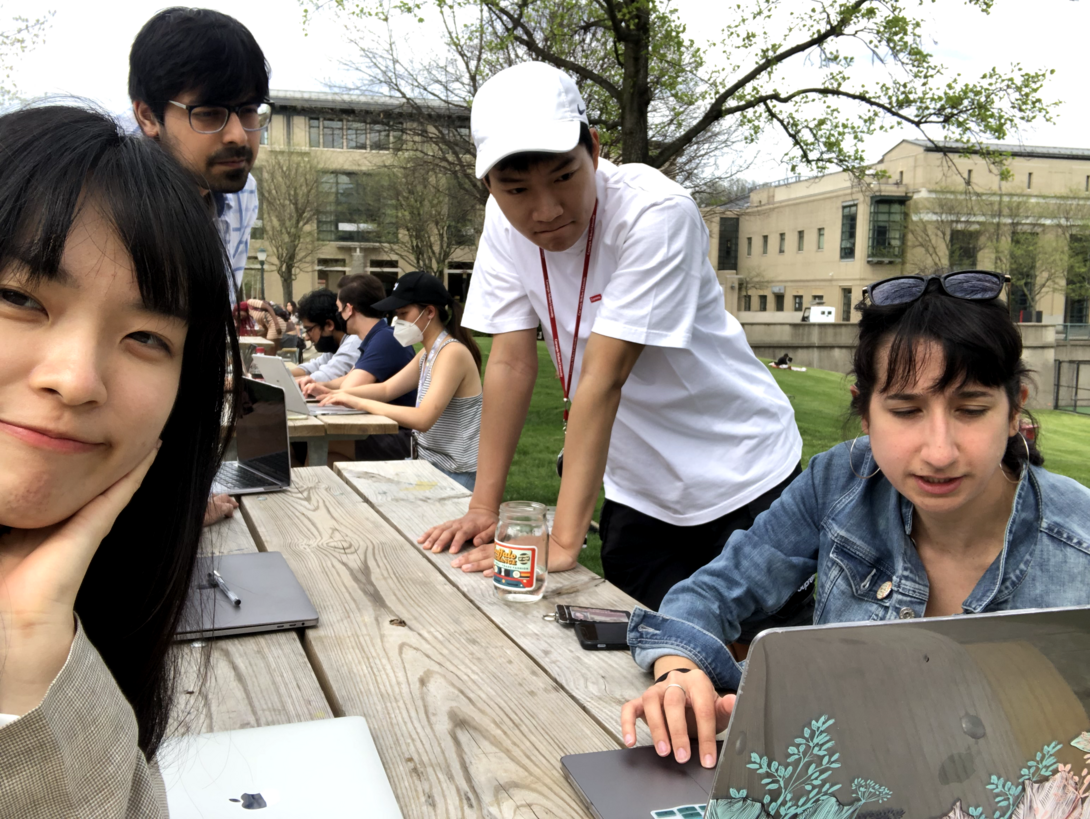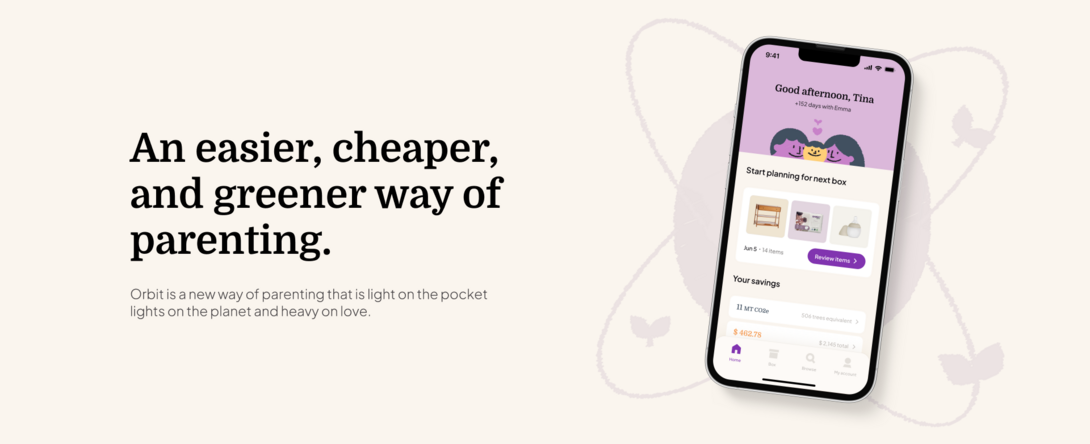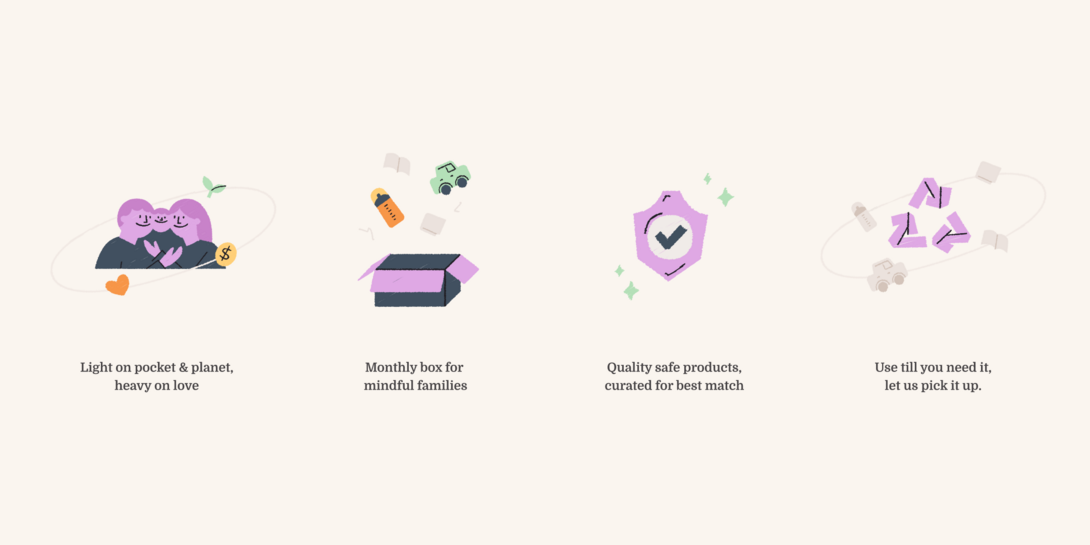School of Design Masters Students Win SF Design Week Award

A team of master's students from Carnegie Mellon University's School of Design recently won the prestigious San Francisco Design Week Award for their project, “Orbit,” an app-based service that promotes sustainability through rental and sharing economy amongst new parents. It helps parents access the right products for the right time at a fraction of the retail price. The design team, comprised of students Laura Pedrosa (MPS ‘22), Lokesh Fulfagar (MDes ‘23), Youngryun Cho (MDes ‘23), and Weijie Wang (MDes ‘23) describe Orbit as “a new way of parenting that is light on the pocket, light on the planet, and heavy on love. Reusable rentals and single-use products from sustainable brands are curated and delivered monthly, personalized to the baby’s age and style while undergoing certified safety & clean checks every time.” When the child outgrows the items, Orbit picks them up at the next box delivery.
The idea for Orbit originated in the team’s Dexign Signals studio course, taught by Professor Peter Scupelli. The team was tasked with the challenge of designing a solution that contributes to carbon neutrality by 2050 while also improving the current way of life. They decided to focus on the transition phase of becoming a first-time parent for three primary reasons; “research suggests life transition phases are the most impactful periods for behavior change, and becoming new parents is considered one of the most significant ones.” Secondly, “this phase of life is notorious for high consumption and waste due to the baby's growing needs accounting for extreme carbon emissions,” the team explains. “Finally, it also comes with a lot of expenses, difficulties, and challenges for parents to navigate this phase. Orbit tackles all of these by providing an easier, cheaper, and greener way of parenting.”

The process of developing and launching Orbit was comprehensive and thorough, involving “multiple rounds of research with parents, vetting with business experts and multiple iterations.” Though the team felt “confident and optimistic” about Orbit, “it’s always scary as a designer to just put your creation out there in the world, for everyone to see and critique. But we chose to take that leap and glad we did that.” When they learned of their award win, the team says they were “surprised given the prestige of the SF Design Week Award, we were elated seeing our hard work come to fruition, and finally there was this feeling of affirmation that yes, what we have created is genuinely good.”
In reflecting on the role of their CMU design education in their journey with Orbit, the team says; “the most outstanding value of doing master’s study here is that you get to be surrounded by immensely talented folks. The MDes program admits students from different educational and professional backgrounds which contributes to creating interdisciplinary environments.” Over the course of their master’s studies the team says they’ve learned “that every designer brings unique skill sets and perspectives, and we reach the best outcomes when we make the most out of that diversity. The way Orbit came out to be a unique mix of design research, business strategy, service design, interaction design, and communication design is simply an outcome of that interdisciplinarity and close collaboration.”

The team credits their “cohort and the faculty” for “pushing us at each stage to step out of our comfort zones and go a mile further, which creates this amazing culture of always striving for excellence. This is what we believe helped us take Orbit a notch above.” The team also says they received “constant support” from CMU faculty, whose “expertise they bring from the academia and the industry, along with the school’s strong focus on designing for good played a huge part in shaping our ideas and principles behind Orbit.”
As they look ahead, the team intends to “take the idea of Orbit to the global level with platforms like The Index Project. We have done our research and strongly believe in the practicality and real-life impact of our solution in improving the way of life for new parents while being cost and carbon-efficient.” They also shared a piece of advice for incoming students; “to take that jump and utilize every opportunity to put yourself and your creations out there in the world. The worst that can happen is that you get some great feedback on how you can improve further, which sounds like a win too!”